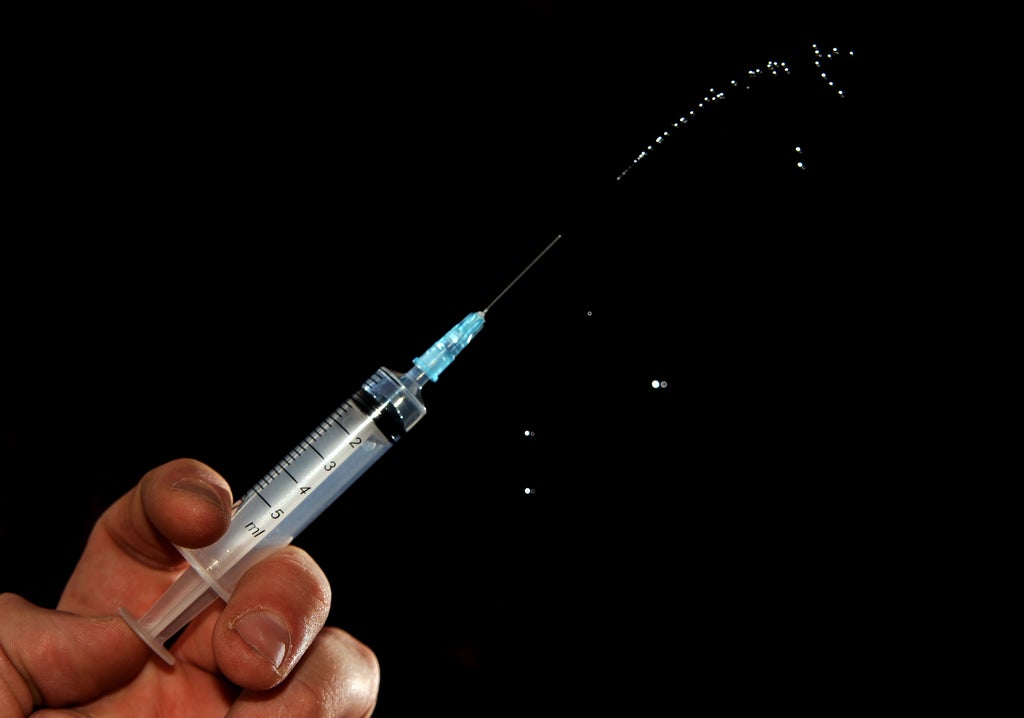Threat of untreatable gonorrhoea ‘could be tackled with meningitis vaccine’

An existing meningitis vaccine could be used to help protect against gonorrhoea amid rising global cases and growing bacterial resistance to drugs, a new study suggests
Gonorrhoea is a sexually transmitted infection (STI) which, if untreated, can lead to serious health conditions, including infertility in women, transmission to newborn babies and increased risk of HIV.
According to the World Health Organisation (WHO), in 2020 more than 80 million new cases of the infection were recorded worldwide.
Researchers suggest declining effectiveness of treatments for the bacteria responsible – Neisseria gonorrhoeae – and the lack of a licensed vaccine to prevent the infection have raised concerns about the possibility that gonorrhoea may become more resistant to treatment, or even untreatable, in future.
In 2016, the WHO set a target to reduce gonorrhoea incidences by 90% by 2030, however no effective vaccine has so far been developed.
Three new studies suggest the 4CMenB meningitis vaccine may offer significant protection to young adults, and to men who have sex with men who might be at higher risk of infection.
With a gonorrhoea-specific vaccine likely to take years to develop, a key question for policymakers is whether the meningitis vaccine 4CMenB should be used against gonorrhoea infection
Professor Peter White, Imperial College London
Until now, no study had assessed both the health impact and cost-effectiveness of using a vaccine to prevent gonorrhoea.
A modelling study led by Professor Peter White, Imperial College London, was the first analysis of the health and economic effects of using a vaccine to protect against gonorrhoea that accounts for its impact on future rates of infection.
A simulation model was developed to compare three realistic vaccination approaches among men who have sex with men (MSM) in England.
These were vaccination of all men attending sexual health clinics, vaccination following a confirmed gonorrhoea diagnosis, or vaccination based on risk of infection.
Based on their analysis and a balance of cases prevented versus the cost of vaccination, the researchers recommend vaccinating MSM at highest risk of gonorrhoea infection with 4CMenB, which would prevent an estimated 110,000 cases and save £8 million over 10 years.
Professor Peter White said: “With a gonorrhoea-specific vaccine likely to take years to develop, a key question for policymakers is whether the meningitis vaccine 4CMenB should be used against gonorrhoea infection.
Our findings suggest that meningitis vaccines that are even only moderately effective at protecting against gonorrhoea could have a major impact on prevention and control of the disease
Dr Winston Abara
“Our analysis suggests that giving the vaccine to those at the greatest risk of infection is the most cost-effective way to avert large numbers of cases.”
A study of the effectiveness of the 4CMenB meningitis vaccine in a large-scale vaccination programme in South Australia indicates two doses of the vaccine is 33% effective against gonorrhoea in adolescents and young adults.
Professor Helen Marshall, the Women’s and Children’s Hospital in Adelaide, Australia, said: “While recent studies have provided evidence that 4CMenB vaccination is associated with reduced risk of gonorrhoea, the vaccine was only offered to adolescents and young adults for short periods.
“The unprecedented scale of South Australia’s 4CMenB vaccination programme offers valuable real-world evidence of the vaccine’s effectiveness against meningococcal B meningitis in children and adolescents, and gonorrhoea in adolescents and young people. This information is vital to inform global meningitis vaccination programmes and policy decisions.”
While a study of health records for 16-23-year-olds in New York City and Philadelphia, in the US, during 2016-2018 suggests two doses of the same vaccine provides 40% protection against gonorrhoea.
Dr Winston Abara, US Centres for Disease Control and Prevention, said: “Our findings suggest that meningitis vaccines that are even only moderately effective at protecting against gonorrhoea could have a major impact on prevention and control of the disease.
“Clinical trials focused on the use of 4CMenB against gonorrhoea are needed to better understand its protective effects and could also offer important insights towards the development of a vaccine specifically for gonorrhoea.”
The findings are published in three linked papers published in The Lancet Infectious Diseases journal.
For all the latest Science News Click Here
For the latest news and updates, follow us on Google News.

